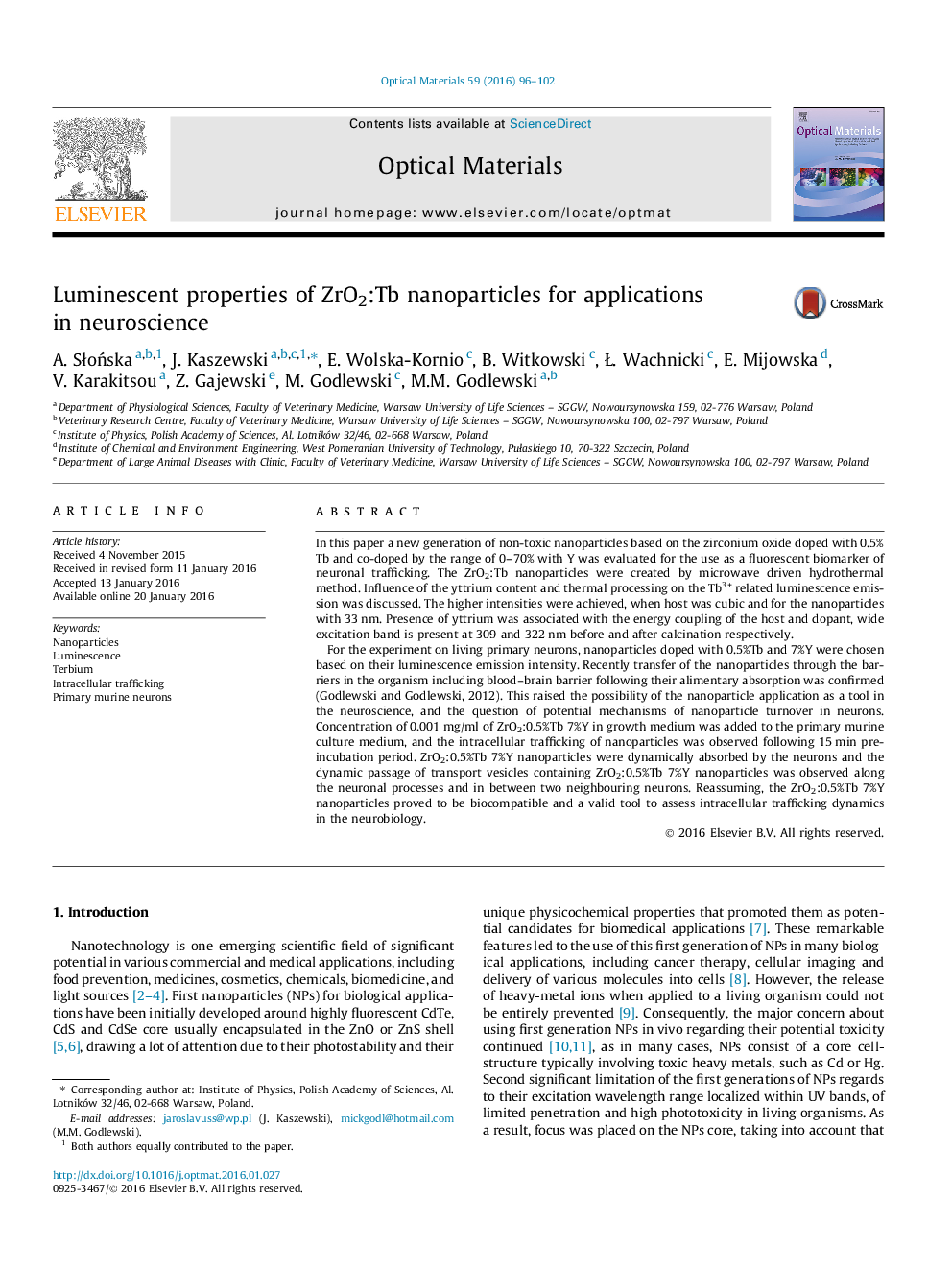| Article ID | Journal | Published Year | Pages | File Type |
|---|---|---|---|---|
| 1692104 | Optical Materials | 2016 | 7 Pages |
Abstract
For the experiment on living primary neurons, nanoparticles doped with 0.5%Tb and 7%Y were chosen based on their luminescence emission intensity. Recently transfer of the nanoparticles through the barriers in the organism including blood-brain barrier following their alimentary absorption was confirmed (Godlewski and Godlewski, 2012). This raised the possibility of the nanoparticle application as a tool in the neuroscience, and the question of potential mechanisms of nanoparticle turnover in neurons. Concentration of 0.001Â mg/ml of ZrO2:0.5%Tb 7%Y in growth medium was added to the primary murine culture medium, and the intracellular trafficking of nanoparticles was observed following 15Â min pre-incubation period. ZrO2:0.5%Tb 7%Y nanoparticles were dynamically absorbed by the neurons and the dynamic passage of transport vesicles containing ZrO2:0.5%Tb 7%Y nanoparticles was observed along the neuronal processes and in between two neighbouring neurons. Reassuming, the ZrO2:0.5%Tb 7%Y nanoparticles proved to be biocompatible and a valid tool to assess intracellular trafficking dynamics in the neurobiology.
Related Topics
Physical Sciences and Engineering
Materials Science
Ceramics and Composites
Authors
A. SÅoÅska, J. Kaszewski, E. Wolska-Kornio, B. Witkowski, Å. Wachnicki, E. Mijowska, V. Karakitsou, Z. Gajewski, M. Godlewski, M.M. Godlewski,
